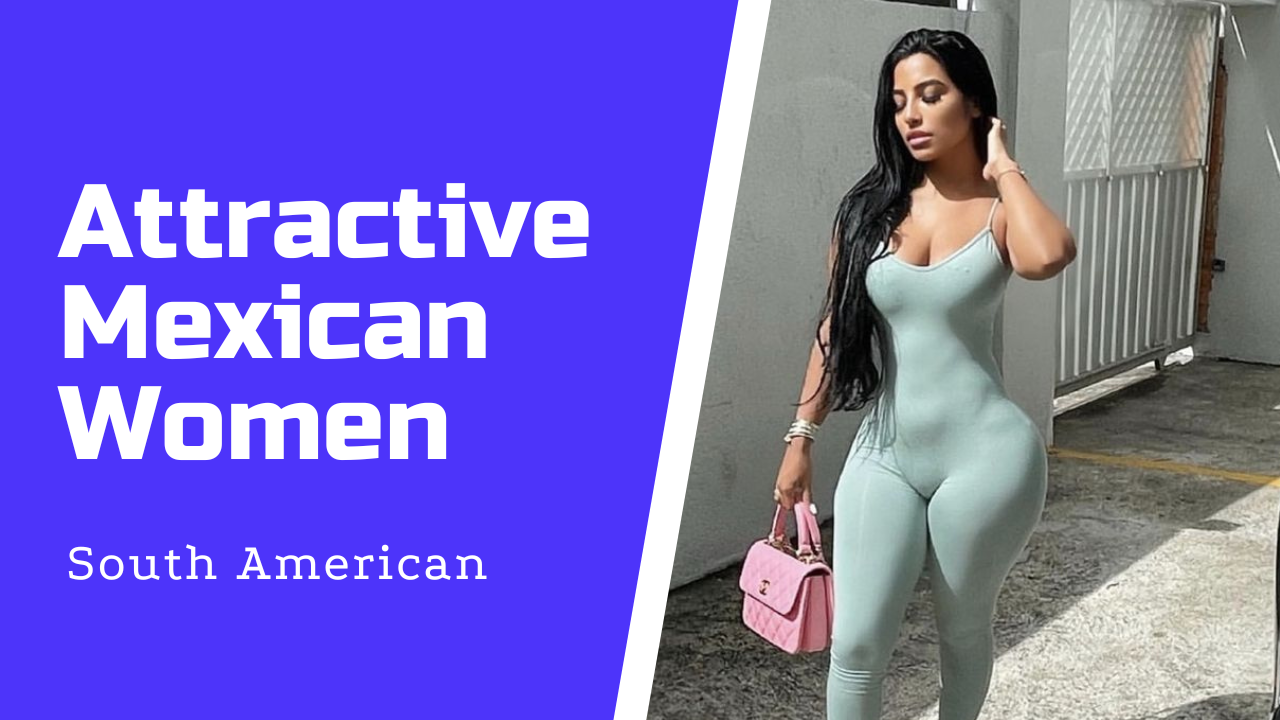In Mexico, young women are increasingly stepping into significant roles in both education and various industries. For decades, Mexican women have worked hard to gain access to educational opportunities that were historically restricted. Today, women in Mexico are making great strides in completing higher education and pursuing professional careers. The success of young Mexican women in these areas can be credited to changing societal norms, government incentives, and greater access to learning opportunities.
In cities like Mexico City, Guadalajara, and Monterrey, young Mexican women are enrolling in universities at unprecedented rates. While there were once significant gaps in education between men and women of Mexico, this divide is gradually closing. Young Mexican women are proving themselves to be resilient and resourceful, playing leadership roles that were once reserved for men. Data suggests that fields such as engineering, business administration, and technology are particularly attractive career paths for these women.
These shifts are reshaping the way young Mexican women interact with the workforce, providing them with chances to influence key sectors of industry. They are taking leadership roles in startups, entering boardrooms, and adding value in traditionally male-dominated fields. Initiatives from universities and the private sector have also helped cultivate supportive environments for their professional growth. Mentorship programs, scholarships, and networking events all contribute to the growth of women’s roles in these spaces.
These trends provide hope for the future of equality across industries. Young Mexican women are finding themselves at the forefront of modernizing industries, bolstered by their growing influence in education. Ending gender-based impediments helps society at large progress, while businesses gain from fresh ideas and diverse perspectives.
How Attractive Mexican Women Navigate Gender Expectations?

Attractive Mexican women often find themselves confronting specific challenges in professional settings. Gender expectations and social pressures regarding appearance can affect their experience in both workforce dynamics and higher education environments. While being comfortable in one’s skin is important, it’s necessary to acknowledge that societal assumptions based on physical appearance can add an extra layer of challenge.
For some attractive Mexican women, these expectations can lead to stereotyping in the workplace. Colleagues may make biased assumptions about their competence, focus, or dedication. Regardless of their qualifications or work ethic, the way they are perceived in the workplace may restrict their opportunities for growth and advancement. These perceptions may be detrimental as they may limit the roles that these women are considered for, or result in them having to work harder to prove their worth.
Despite these hurdles, attractive Mexican women are making undeniable progress through determination and skill. By excelling in their professional domains, they break gender stereotypes and challenge traditional perceptions. Many have found support networks consisting of mentors, peers, and communities that value their contributions beyond outward appearances.
Public spaces also play roles in how people perceive them. Outside of professional settings, attractive Mexican women, like others, experience similar issues when it comes to age-old gender norms. They work through unsolicited attention, societal pressure, and internal conflicts, often juggling these realities with their professional goals. Their success indicates a wider conversation needs to occur about gender and beauty in working environments.
While it’s clear that professional success is shaped by skill and knowledge, evolving attitudes toward gender and appearance open new paths for growth. Mexican women from diverse backgrounds continue taking steps to overcome gender disparities in ways that reshape perceptions not only of themselves but of women everywhere.
Breaking Stereotypes About Big Mexican Women in Media
The media has long played a significant role in shaping societal perceptions of beauty and body image, not only in Mexico but globally. Big Mexican women often face stereotypes and misconceptions when it comes to their representation in various forms of media. Historically, mainstream presentations of Mexican women have idealized specific body types, often sidelining anyone who doesn’t conform to these narrow standards.
In recent years, there have been opportunities for big Mexican women to find more authentic and diverse representations across platforms. Independent content creators, lifestyle influencers, and diverse media voices have championed body positivity, challenging the long-reinforced stereotypes. What’s increasingly clear is that beauty standards set by conventional media don’t reflect the full spectrum of what beauty looks like among Mexican women, including those with bigger body types.

More platforms are beginning to recognize the diversity of body shapes and sizes in Mexico, putting big Mexican women front and center in campaigns, advertisements, and social narratives. With an increasing push for inclusivity, the conversation around body types is expanding. By promoting more diverse representations, the media industry is slowly adjusting to the demand for inclusivity regarding beauty ideals.
A key driver behind these changes is the growing influence of social media, where big Mexican women are creating spaces that embrace body positivity and self-acceptance. These spaces empower anyone, regardless of size, to share their stories, experiences, and perspectives, which fosters a deeper conversation on size inclusivity in Mexico. They are speaking openly about body positivity across platforms like Instagram and YouTube, making waves of change in Mexican and Latin American online communities.
Many men and women in Mexico are undergoing shifts in perspectives as more varied body representations become accessible. Traditional media, advertising, and entertainment still have a long way to go when it comes to inclusivity, but some progress is visible. From hosting larger models in fashion shows to promoting a wider range of body types in lifestyle marketing campaigns, the media’s role in changing views is becoming more apparent. These efforts to include larger body types in the larger media conversation help validate and affirm self-worth, offering validation to those who may feel sidelined by traditional beauty standards.
Body positivity for big Mexican women comes down to visibility and acceptance. Challenging stereotypes requires offering representation in all its forms to accurately depict the diverse bodies among women of Mexico. When more people see themselves represented positively in the public sphere, there’s a shift toward celebrating all forms of beauty.
How Mexican Singles Women are Redefining Relationships and Marriage?

The traditional view of relationships and marriage is seeing a shift in many parts of the world, and Mexico is no exception. Mexican women, especially those who are single, are taking more control over their personal and financial independence. These young Mexican women are choosing paths that focus on their careers, education, and self-determination, reframing how they approach relationships and life choices.
Throughout history, marriage was often seen as a cornerstone for women in Mexican culture. With rapid urbanization, higher levels of education, and greater job participation, today’s Mexican singles women are prioritizing personal growth and autonomy. Many are postponing marriage or choosing not to marry altogether, valuing the freedom that comes from living life on their own terms.
This shift also challenges the expectations for when and how a Mexican woman should marry or have children. By asserting their independence, these women of Mexico demonstrate that a successful and fulfilling life doesn’t depend solely on meeting societal standards regarding romantic commitments.
It is also becoming more common for attractive Mexican women to engage in non-traditional relationships. Long-term cohabitation without marriage, for example, is gaining broader acceptance. Such choices are no longer seen as rebellious but as smart, pragmatic decisions by women who are balancing family, love, and career on their own terms. They are demonstrating that love and commitment need not be confined to conventional frameworks, reshaping popular concepts of partnership.
The Rising Influence of Women of Mexico in Governance and Social Movements
Mexican women have also been making strides in political realms, assuming leadership positions that would have been unreachable only a generation ago. Women of Mexico are taking active roles in politics, whether as local leaders, activists, or even national representatives. Empowered by a growing demand for women’s rights and equality, these leaders are becoming essential voices in shaping the future of the country.
Take, for example, the increasing pace of women’s participation in both local politics and grassroots social movements. Feminist movements in Mexico have drawn global attention, protesting past injustices and focusing on broad societal reform. This includes efforts to fight against gender-based violence, which remains a major concern in the country. Mexican women have been at the forefront of demanding better protections under the law, striving to ensure that their voices are heard within a legal system that hasn’t always prioritized their well-being.

It should also be noted that young Mexican women are not only inspiring change in social movements but are also part of decision-making processes at the highest level of governance. Several women hold prominent political roles in Mexico today and continue to advocate for policies surrounding education reform, workplace equality, and health care initiatives.
As women continue to challenge long-standing barriers to equal political participation, they are showing Mexican society that they have a critical role in governance. This transformation will likely continue as more Mexican women challenge stereotypes and push for a seat at the decision-making table.
The Complex Reality for Pretty Mexican Women in Society
Beauty standards for women vary worldwide, and in Mexico, these societal perceptions shape how an individual may be viewed. Pretty Mexican women often face unique expectations tied to physical appearance, glamour, and traditional femininity. Like many Latina women across the globe, being attractive is often connected to cultural notions of womanhood and identity.
The media plays a significant role in setting these expectations, with television, films, and advertising often showcasing only a specific type of beauty. This usually focuses on conventionally attractive Mexican women with lighter skin tones, slim figures, and Eurocentric features. This narrow depiction disregards much of Mexico’s rich diversity, where many skin tones and body types exist, including big Mexican women whose beauty may fall outside of mainstream ideals.
The emphasis on looking a certain way can lead to increased social pressure for young Mexican women, influencing how they approach self-esteem, health, and confidence. The rise of social media platforms has also amplified these concerns, as images and ideals of beauty can spread easily online, impacting how Mexican women view themselves and each other.
Efforts are being made to reclaim more inclusive and representative beauty standards that reflect the real diversity of Mexican women. Mexican women of different body types and skin colors are taking public space to present unique representations of beauty, challenging the long-standing norms enforced by media and advertising. These representations include not only slim and lighter-skinned women but also big Mexican women and darker-skinned women, broadening the conversation around beauty to make it more inclusive.

It also bears mentioning that many Mexican women continue to weave together traditional beauty rituals with modern standards. These cultural practices connect them to their ancestry while allowing for fluidity in how they represent themselves today. Whether they are leveraging their attractiveness as part of their public identity or rejecting conventional beauty norms entirely, Mexican women continue to define their place in society through both individual and collective expressions of beauty.
Health and Safety Issues Affecting Women of Mexico in Urban and Rural Areas
The well-being and safety of women of Mexico, both in urban and rural settings, remain a complex and evolving concern. Whether discussing the conditions that affect young Mexican women living in crowded city centers, or big Mexican women working in rural agricultural regions, various factors contribute to the disparities they experience in health and safety.
In urban areas, access to preventive healthcare services has increased, but challenges like pollution, overcrowded living conditions, and street violence continue to impact Mexican women. Large cities like Mexico City, Guadalajara, and Monterrey often face significant issues related to environmental health risks, which can harm the physical well-being of attractive Mexican women, like respiratory issues caused by heavily polluted air.
Some women, particularly in rural areas, encounter difficulty accessing medical services on a timely basis. Basic reproductive healthcare for big Mexican women and younger generations alike may be delayed or unavailable. This is further complicated by the lack of infrastructure such as understaffed clinics or cultural norms that prioritize domestic health practices over conventional medical guidance.
Domestic violence is another critical safety issue. Many women of Mexico, including brave Mexican singles women, face serious challenges regarding physical safety, especially in households where legal protection and law enforcement responses are slow or inadequate. For Mexican women in rural settings, geographic isolation hinders access to supportive resources like shelters and legal aid. Domestic violence also intersects with economic dependency, influencing the choices that keep many Mexican woman from seeking escape from dangerous environments.

Efforts from local governments and international organizations continue to make slow but meaningful progress, focusing on improving both healthcare access and legal protection. Health campaigns aimed at spreading awareness have gained traction, but trust in those services varies significantly between urban and rural areas. Importantly, finding ways to establish safer environments and improved healthcare services for young Mexican women is now seen as a priority across different sectors.
How Young Mexican Women Are Disrupting the Startup Scene?
The entrepreneurial landscape in Mexico has witnessed a remarkable shift, driven by young Mexican women entering the tech space with incredible ambition and innovation. No longer silent contributors in the background, these professionals have identified opportunities in the digital age and have charged forward to challenge traditional norms. The startup ecosystem in Mexico has been evolving, with key attention going to tech-savvy Mexican women who are building applications, services, and ventures to address everyday needs across fields ranging from financial technology to socially responsible businesses.
In tech hubs like Mexico City and Monterrey, we see attractive Mexican women founding technology startups and receiving accolades internationally for their ventures. These young leaders are not merely participating in the tech industry, but actively shifting it toward gender inclusion. Despite the challenges they face including access to venture capital and deep-rooted stereotypes this new generation of women entrepreneurs is making waves.
The demand for digital solutions spanning apps, edutech platforms, and healthtech services has opened up enormous potential for growth, allowing women of Mexico to contribute their unique perspectives to the tech sector. These startups often focus on solving practical problems faced by people in their own communities, driving both social and economic progress.
Importantly, the influx of female talent in this sector has led young Mexican women to spark crucial conversations about diversity and representation in previously male-dominated arenas. While there is much more work ahead to level the playing field, the success stories of these brilliant young women demonstrate that they are paving the way for future generations to embrace technology careers, in places traditionally unreceptive to such gender balance.

Attractive and driven Mexican women are now competing at international pitch events, securing funding, and growing their ventures on a global scale. The journey has included significant hurdles, but perseverance has resulted in some significant wins, reshaping perceptions about what it means to be a business leader in Mexico’s evolving tech industry.
Pressures Faced by Mexican Women in Modern Families
The balance between maintaining domestic responsibilities and pursuing career aspirations has long shaped the lives of Mexican women. Shifts in modern family expectations now play a significant role, adding pressure for pretty Mexican women who want to advance their professional careers while still managing traditional roles at home.
As more Mexican women enter the workforce, they face societal pressures that are both personal and cultural. For many, there remains a deeply ingrained expectation to care for children, support aging parents, and manage household chores all while excelling in their careers. This is especially true for Mexican singles women who must balance their professional commitments with familial expectations of contributing to caregiving roles, often without adequate external support systems.
For younger generations, including young Mexican women moving to urban areas for better job opportunities, achieving career success does not exempt them from the tasks related to their homes. It’s not uncommon for a Mexican woman to work full-time in a corporate or entrepreneurial role, then return home to fulfill the duties of cooking, cleaning, and maintaining familial relationships. These women, often well-educated and highly skilled, work tirelessly both in professional spaces and private settings, negotiating between personal ambition and societal expectation.

The pressure intensifies for big Mexican women in several rural parts of the country, where career options outside the home are limited and traditional roles remain prevalent. Even modern, forward-thinking young Mexican women in ambitious careers may find it difficult to navigate family obligations and unwritten but rigid social norms that frame domestic responsibilities as mostly belonging to women.
Despite the growing recognition of gender equality initiatives in Mexico, many women of Mexico still find themselves in positions where they are expected to prioritize family life over personal achievements. For some, these expectations come not just from immediate family but from society at large, with frequent comments on how pretty Mexican women should prioritize familial obligations over their jobs.
Efforts to confront these expectations are varied. Some Mexican women have opted for shared domestic responsibilities with their partners, while others have sought help from extended family members or outsourced certain tasks. Nonetheless, many Mexican woman continues to grapple with the mental and physical strain of being “successful” in more than one aspect of life.
The redefinition of gender roles both at home and in the workplace is increasingly becoming part of the national conversation, as Mexican women call attention to the need for more family-friendly workplaces and policies, stronger support systems within their households, and broader acceptance of non-traditional familial models.
